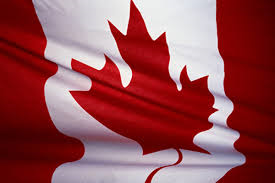VANCOUVER, (APP/AFP): Canadian regional leaders have ended
climate talks Thursday without agreement on a central government goal to establish a carbon pricing plan.
Prime Minister Justin Trudeau wants to set a national carbon price in order to meet an international commitment to slash CO2 emissions that cause global warming.
Leaders of 10 provinces and three territories met in Vancouver Thursday, each with vastly different economic circumstances and goals, pushing their own tailored approach to reducing greenhouse gas emissions to help keep global temperatures from rising more than 1.5 degrees Celsius.
This target was agreed to at the Paris climate summit late last year.
The Canadian leaders agreed to work further on the issue before more talks in the autumn.
“Carbon pricing is an important part of the suite of tools we have to bring forward the low carbon economy,” Trudeau told reporters, flanked by the regional leaders.
Though vague, the ministers pledged in a joint document to work on carbon pricing adapted to each jurisdiction’s unique circumstances.
There was no word about a March deadline set by federal Environment
Minister Catherine McKenna during last fall’s Paris climate summit for all
Canadian leaders to agree on even deeper greenhouse gas cuts than were agreed in Paris.
Trudeau said, “I’m pleased that we have today agreement to move forward in a way that respects the challenges and particularities of jurisdictions across the country.”
The new federal government, backed by strong public support, had been
expected to urge the other leaders to adopt a carbon price floor of Can$15 per metric tonne, to meet Canada’s international commitment to slash CO2 emissions.
But several premiers, who share jurisdiction over the environment with the federal government, expressed strong opposition even before the meetings.
Differences within the diverse group were downplayed in Thursday’s joint so-called Vancouver Declaration on Clean Growth and Climate Change. The document is strong on promises of more cooperation but short on specifics.
The ministers agreed to form four working groups, each including indigenous people, and meet again in the fall to finalize a “pan-Canadian framework on clean growth and climate change,” and review progress toward a national energy strategy.
International News
Canadian leaders fail to reach agreement on carbon pricing
